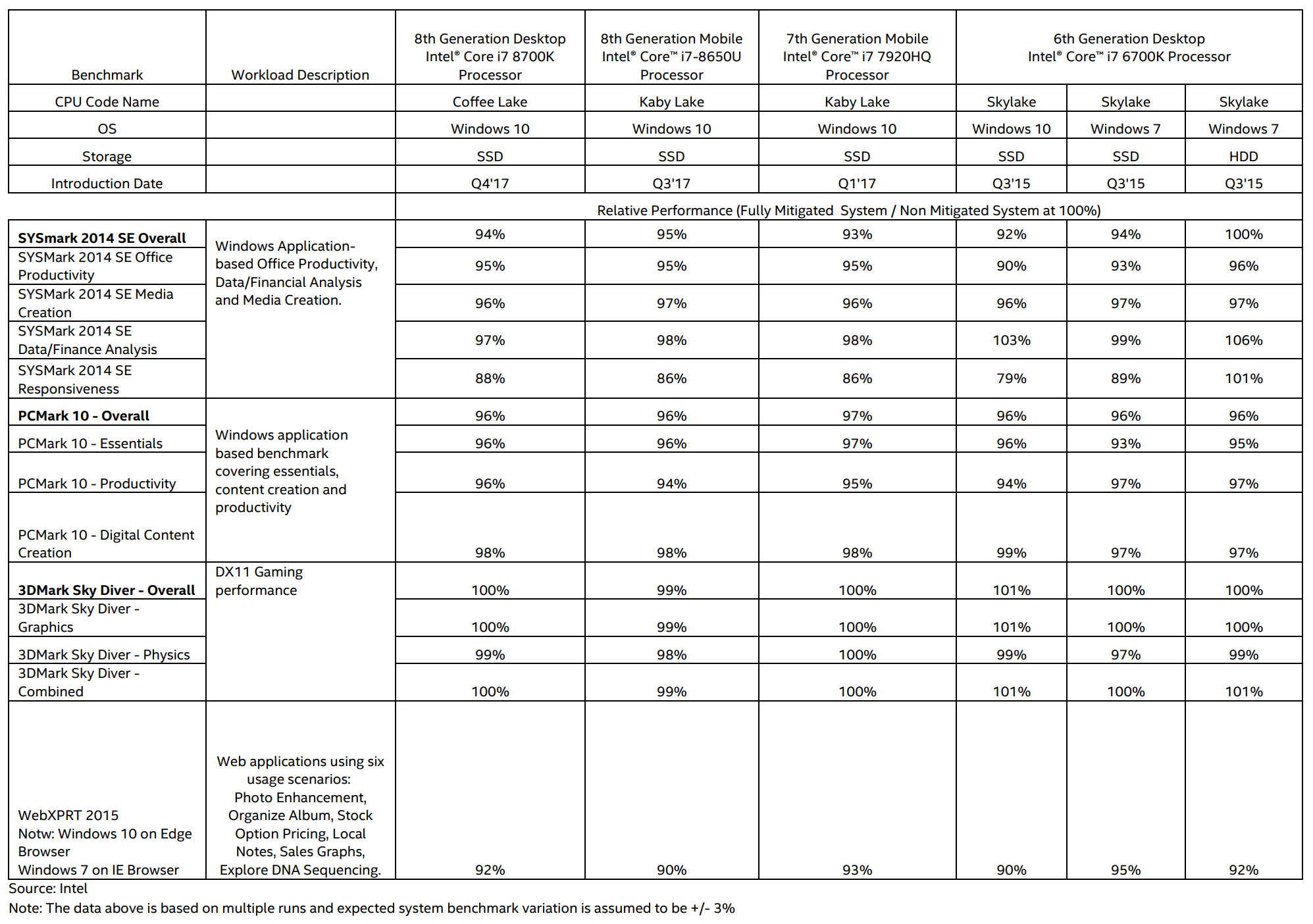
Meltdown and Spectre, two major CPU hardware flaws, have taken the Internet by storm lately. As we reported when the flaws were first disclosed, Meltdown and Spectre could allow hackers to gain access to sensitive personal information throughout your system - business documents, passwords stored in password managers and more.
If that wasn't bad enough, the patches designed to address these issues were also having a negative impact on system performance. Though this is a trade-off many seem willing to make for the sake of increased security, it was still understandably concerning to many users.
To get to the bottom of the issue, we ran our own benchmarks to test gaming performance and storage device speeds. While our findings are inconclusive without further confirmation from other outlets, the patches don't seem to have had any major discernible impact on our test system's gaming performance (SSD performance is another story).
That said, Intel doesn't seem interested in leaving the benchmarking up to third-parties. Today, the company published a blog sharing their own findings which seem to suggest that no one system should see more than a 10 percent overall impact on performance.

Customers who use heavier applications on a regular basis will see their performance impacted to a greater degree than those who stick to lighter applications and general browsing, Intel says.
"Across a variety of workloads, including office productivity and media creation as represented in the SYSMark2014SE benchmark, the expected impact is less than 6 percent. In certain cases, some users may see a more noticeable impact. For instance, users who use web applications that involve complex JavaScript operations may see a somewhat higher impact (up to 10 percent based on our initial measurements). Workloads that are graphics-intensive like gaming or compute-intensive like financial analysis see minimal impact."